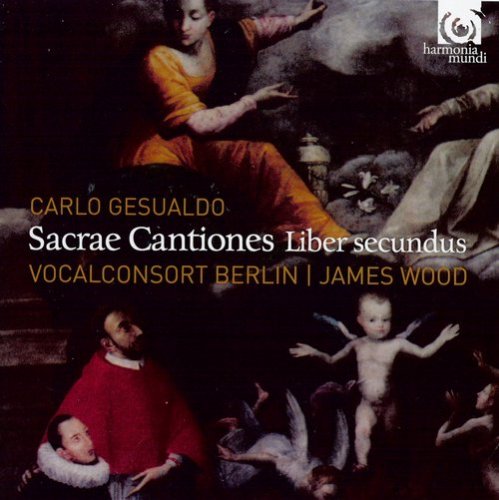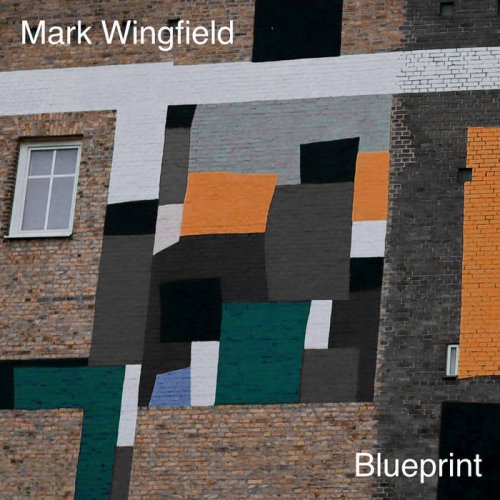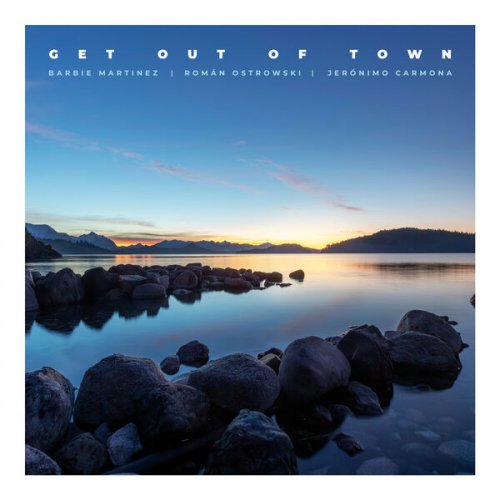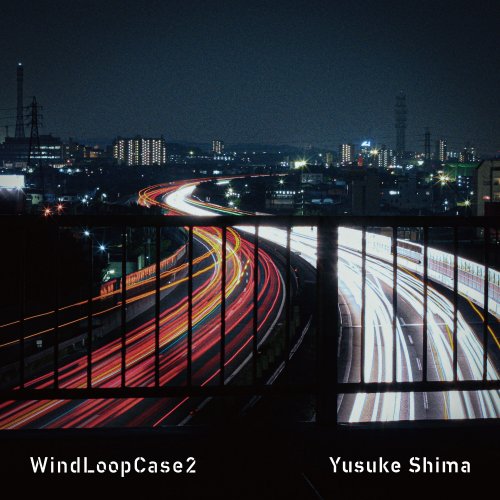Vocalconsort Berlin, James Wood - Carlo Gesualdo - Sacrae Cantiones, Liber secundus (2013)

Artist: Vocalconsort Berlin, James Wood
Title: Carlo Gesualdo - Sacrae Cantiones, Liber secundus
Year Of Release: 2013
Label: Harmonia Mundi
Genre: Classical, Sacred
Quality: FLAC (image+.cue,log,scans)
Total Time: 69:22
Total Size: 339 Mb
WebSite: Album Preview
Tracklist: Title: Carlo Gesualdo - Sacrae Cantiones, Liber secundus
Year Of Release: 2013
Label: Harmonia Mundi
Genre: Classical, Sacred
Quality: FLAC (image+.cue,log,scans)
Total Time: 69:22
Total Size: 339 Mb
WebSite: Album Preview
Carlo Gesualdo (1560?-1613)
Sacrae Cantiones Liber secundus (a6 e a7) (1603)
Reconstructed by James Wood
Opening Canticle
[1] Miserere
Prayers for Salvation
[2] I. Virgo benedicta
[3] V. O oriens
[4] XVI. O beata Mater
[5] XIII. Verba mea
[6] VIII. Veni Creator Spiritus
[7] IV. Ave sanctissima Maria
[8] III. Sana me Domine
Despair and Weeping
[9] VI. Discedite a me omnes
[10] XIX. O anima sanctissima
[11] XIV. Ardens est cor meum
Peace and Hope
[12] II. Da pacem Domine
[13] XV. Ne derelinquas me
[14] XVIII. Franciscus humilis et pauper
[15] VII. Gaudeamus omnes
Praise and Thanks
[16] X. Adoramus te Christe
[17] IX. O sacrum convivium
[18] XVII. Ad te levavi
[19] XII. Assumpta est Maria
[20] XI. Veni sponsa Christi
[21] XX. Illumina nos
Closing Canticle
[22] Benedictus
Performers:
Vocalconsort Berlin
dir. James Wood
These motets are "new" works by radical late-Renaissance composer Carlo Gesualdo. They date from the end of his life, contemporary with his last books of madrigals and with the Tenebrae Responsories, two of which are also heard here as a frame for the program. The second book of these Sacrae Cantiones came down to the present in an incomplete state, with two (or one) of the parts missing. Igor Stravinsky took a stab at completing them in the 1950s, getting results that were more Stravinsky than Gesualdo, but not until now has the entire set been available, thanks to the years-long efforts of the conductor on this recording, James Wood. Wood is a Gesualdo specialist, and from all appearances he has done an incredibly painstaking job; there is not a note on the album that seems out of place. Moreover, the works themselves are different from what you may have heard of Gesualdo's late sacred style. Some of the Tenebrae Responsories seem like agonized acts of repentance by a composer troubled over past deeds (he killed his wife and her lover, and hung the bodies in front of his castle), but these works are more restrained. They are, however, equally innovative in terms of vertical sonority; often they go right up to a point where a madrigal would become hyperexpressive, but then end the phrase calmly. Sample the Ave santissima Maria, track 7; straight down from Josquin the theme of the adoration of Mary has been conveyed with limpid fifths and thirds, but Gesualdo's treatment is altogether different, a bit mysterious, and even sublime. Wood and the Vocalconsort Berlin do well to arrange the material by textual theme; they differentiate among them nicely. Even the "Despair and Weeping" section does not enter the world of the late madrigals; instead the music shows Gesualdo the master contrapuntist, applying the lessons of a lifetime. Working at Berlin's Teldex Studio, Harmonia Mundi's engineers have outdone themselves here. Highly recommended on all fronts.

![Dave Bainbridge - ON THE EDGE (OF WHAT COULD BE) (2025) [Hi-Res] Dave Bainbridge - ON THE EDGE (OF WHAT COULD BE) (2025) [Hi-Res]](https://img.israbox.com/img/2025-12/18/7l4en830rpyaxdtr7izc3qrx6.jpg)
![Clifton Chenier - Live (1972) [Hi-Res] Clifton Chenier - Live (1972) [Hi-Res]](https://img.israbox.com/img/2025-12/20/ho8gau8m3me6gvkdop8e21lq3.jpg)
![Frank Sinatra, Count Basie - It Might As Well Be Swing (1964) [2021 SACD] Frank Sinatra, Count Basie - It Might As Well Be Swing (1964) [2021 SACD]](https://www.dibpic.com/uploads/posts/2025-12/1766090910_scan-1.jpeg)



![Xavi Torres - Amsterdam Magic (2025) [Hi-Res] Xavi Torres - Amsterdam Magic (2025) [Hi-Res]](https://www.dibpic.com/uploads/posts/2025-12/1766061682_cover.jpg)
